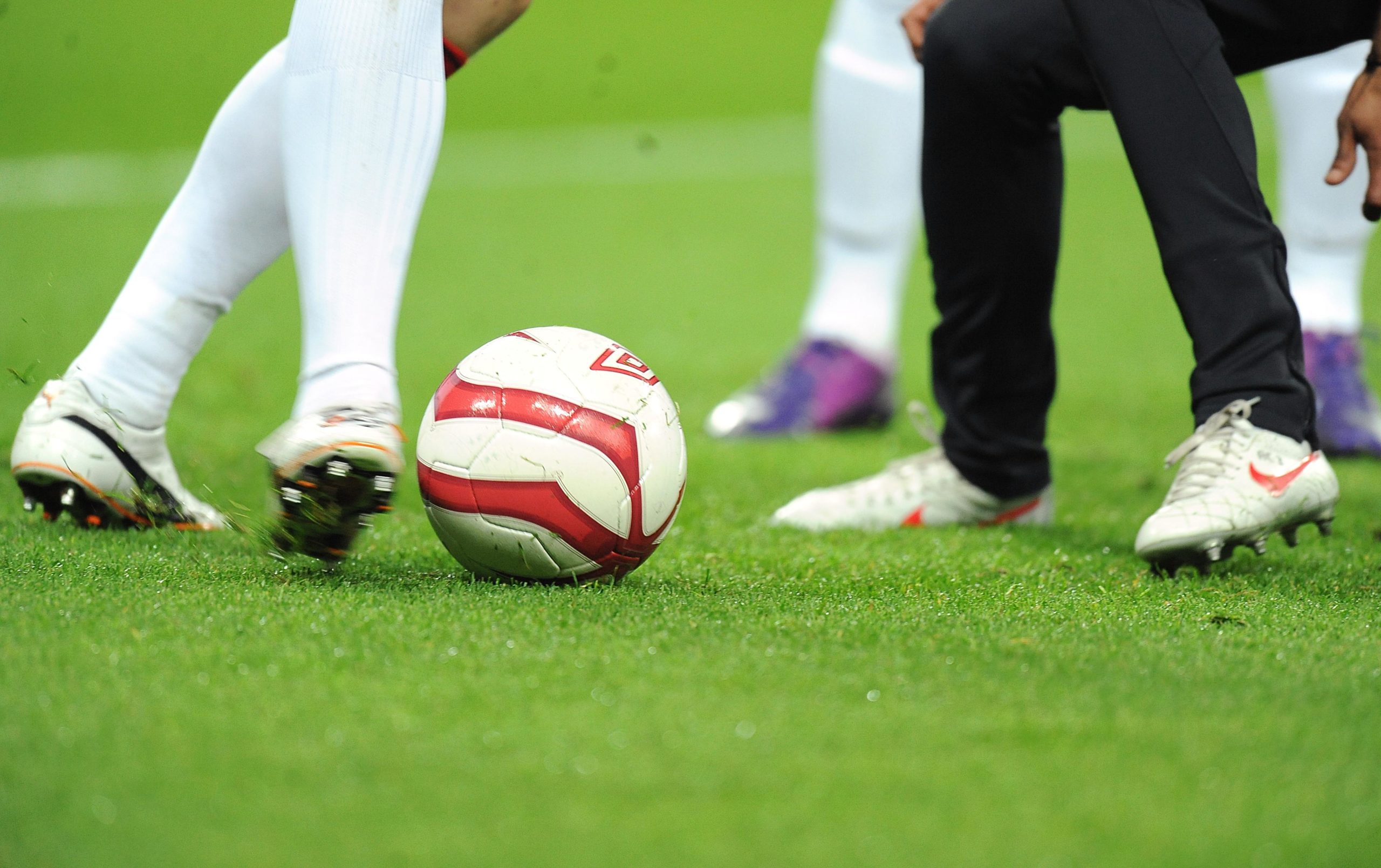
The FIFA World Cup in Qatar was the most luxurious and expensive in history. The Argentina national team won the Cup and, in the final, beat the previous favorites of the championship – the French. The final match was probably the best in the history of football. We had so much adrenaline and excitement during it, almost the same as one could get playing at lasatlantis.com. But the championship will be remembered not by luxurious stadiums and a spectacular opening but by human rights scandals, protests in support of LGBT people, and a ban on alcohol in stadiums.
Problems began as early as the moment Qatar won the competition to host the championship in 2010. It was already suspicious that this very country had never participated in the world championship. Another huge con against this decision was the climate condition – because it was very hot there, the tournament would have to be held in winter. For 12 years, journalists regularly wrote that the Qatari authorities could bribe FIFA to win the World Cup Championship.
Human rights activists added fuel to the fire. At first, the Guardian wrote that 6.5 thousand foreign workers died at the construction site of the championship. Later on, Amnesty International released numbers of over 15,000 victims according to their statistics. They all relied on the statistics of the deaths of foreigners in Qatar over the past 10 years, but the reports did not indicate that their deaths were related to the tournament. This data was picked up by protesting Western fans. The Norwegian and German football associations almost abandoned the trip of the national teams to the championship in protest.
But that’s not it! Shortly before the start of the championship, World Cup Ambassador Khalid Salman said that gays would be accepted in the country, but their behavior is sinful and could harm others. It reminded us that from the beginning, many said Qatar is a controversial place for the World Cup. So the fact that the election of Qatar as the venue for the championship is still being investigated for bribery is adding some spice to the scandals at the Championships.
The Main Scandals Of The World Cup In Qatar
In addition to the fact that Qatar is completely unsuitable for hosting the World Cup for several reasons, the tournament in this country is also accompanied by several scandals. The country’s authorities are being criticized on multiple fronts, so let’s take a closer look at the scandals from World Cup Championship.
LGBT Fans Protests
The first is related to the LGBT agenda. Homosexuality in Qatar is illegal and violated, which can result in the death penalty. Furthermore, Qatar, being an Arab and Muslim country, does not recognize sexual minorities. Nevertheless, before the World Cup, the country’s authorities said they would be happy to fans of any sexual orientation, provided they avoid public displays of feelings. Unfortunately, this statement did not reassure LGBT activists who were actively calling for a boycott of the World Cup in Qatar and outraged FIFA on the issue.
To calm the tensions, British Foreign Secretary James Cleverley urged gay fans to “flexibility and compromise” and that both sides should meet each other halfway. The Qatari authorities said the same, stating that they would welcome everyone regardless of race, religion, gender, or sexual orientation. However, they said they expected respect for their laws and culture in return.
The main scandal concerns the rainbow-colored armbands. Since 2020, as part of the LGBT support campaign, the captains of several European teams (Netherlands, Belgium, England, Wales, Germany, Denmark) wore to matches.
For the World Cup in Qatar, FIFA, under the threat of sanctions, officially banned England and Wales from using rainbow armbands, causing a flurry of outrage among activists. England captain Harry Kane came into Monday’s match without a rainbow armband, for which he and his team were criticized by fans and the sporting community as well. Manchester United legend Roy Keane called it a big mistake not to wear the armband. In his opinion, Kane should have worn it despite the threats from FIFA. Kane tried to justify himself, stating that the decision was “out of his control.”
Human Rights Violations And Migrant Workers’ Deaths
It seems that the migrant workers’ treatment in Qatar and human rights violations are huge problems that have no solution during or after the championship. Western countries insist that the human rights protection system is universal worldwide. In Qatar, they do not think so. In the country, people live by Islamic laws according to which, for example, the rights of men and women are not equal, and for same-sex relationships, you can get a term. Moreover, labor migrants are significantly deprived of their rights compared to citizens, to the extent that workers need to obtain permission not only to enter but also to leave the country.
All this continues to cause harsh criticism from politicians, human rights activists, and even football coaches. For example, the head of the England national team, Gareth Southgate, in numerous interviews, talks about equal human rights much more than, in fact, about football.
Separately, human rights activists emphasize that during the preparations for the 2022 World Cup in Qatar, 15 thousand of labor migrants from poor Asian countries died. In addition, Qatar is criticized for its callous attitude towards migrant workers who built World Cup facilities in inhuman conditions – in the heat, with overtime, low wages, having practically no rights in this country.
Alcohol Ban During The Championship
As in other countries of the region, alcohol is almost completely banned in Qatar, and it is sold only in expensive hotels. After long negotiations and pressure from sponsors – beer companies – Qatar initially made unprecedented concessions, but two days before the start of the tournament, they slightly changed their initial decisions.
According to The Times, such a requirement came as a shock to FIFA. The organization had previously made concessions by making the points of sale of beer in the stadiums less visible, but in the end it was completely canceled. We are talking about alcoholic beer in the stadium’s bowl, while the ban on soft drinks is not mentioned. Beer was sold only in licensed hotels, restaurants, and fan towns from 7 pm to 1 am. At the stadiums, you could only buy non-alcoholic beer for $8 and non-alcoholic drinks for $4. But there is an exception. For those who purchased a ticket to the box for $22,450 apiece (or got there for free as a FIFA functionary), the ban on the sale of alcohol did not apply.
Fun fact: One of the tournament’s sponsors, Budweiser, may sue the tournament organizers. This decision violates the sponsorship contract with FIFA, and the absence of a foamy drink in the stadiums caused outrage among the fans. The beer producer may take this step, especially considering that the financial losses will amount to about 75 million euros. The manufacturing company has already announced that the remaining unsold goods will be a gift for the team that will win the world title.
Other Scandals And Smaller Incidents
In addition, at the World Cup, there were several smaller incidents, but also much more discussed than football matches. For example, on Monday, the Iranian national team refused to play their national anthem before the game with England, expressing their support for the protesting Iranians. Protests had been going on in Iran for two months back then, which began after the murder of a girl at a police station. And Iranian fans came to the match in T-shirts with the inscription “Women, Life, Freedom.”
Qatar also distinguished itself with its attitude towards journalists. First, the Danish journalist was threatened during the live broadcast by the security service of the championship. Then, a bag with documents and money was stolen from an Argentine journalist during a live broadcast. At the same time, the correspondent assures that the Qatar police did not want to accept a statement because she was a woman.
Due to numerous scandals, the players of the national team of Norway and the fans of the Danish team called for a boycott of the World Cup in Qatar, but the sports authorities of these countries did not support this idea. Danish players wore black uniforms to commemorate the workers who died during the construction of World Cup venues.
The authorities of Paris and some other cities in France, which was the former world champion in football, refused to organize fan zones for fans and install large screens on the street to broadcast matches. Some attributed this to the violation of human rights in Qatar, others to savings in the face of the energy crisis (environmental activists approved this decision).
Football teams in Germany and their fans have also called for a boycott of the World Cup in Qatar, while Bloomberg notes unprecedented unanimity on this issue, even among rivals.
Why Is Qatar A Controversial Place For The World Cup?
On Sunday, November 20, the FIFA World Cup began in Qatar and lasted until December 18. It was the largest sporting event ever held in the Middle East and in a conservative, predominantly Muslim country. This championship is also distinguished by its cost: Qatar spent a record amount of $300 billion on preparations for the tournament. $15 billion
As we mentioned before, Qatar was chosen to host the tournament in 2010, and how the small but wealthy Middle Eastern country won the title from the US is still under investigation. However, Joseph Blatter, the FIFA president in 2010, openly admitted: “Choosing Qatar was a mistake” because “it’s too small country for such a big event.”
Officially, FIFA explains the choice of Qatar as a desire to bring football to the Middle East, where there were no big competitions before. But there is another version that the investigation has been checking for more than a decade: in 2010, The Times, citing a source, wrote that two members of the FIFA executive committee received bribes for voting in favor of Qatar. Later, the informant of the publication retracted her words but admitted that the refusal was made under pressure. In 2020, several officials were charged with accepting bribes to support Qatar’s bid. Their trial is due to begin in January. In addition, according to Blatter, French ex-president Nicolas Sarkozy asked Qatar to help with the application, and six months later, Qatar bought fighter jets from the French for $14.6 billion.
By all parameters, Qatar is not suitable for hosting the World Cup. It is a very small country with a population of fewer than 3 million people, a significant part of which are labor migrants. Moreover, Qatar has never been the capital of football, and because of its strict laws has never attracted a large number of tourists.
Qatar is not suitable for football because of the hot climate as well: the average temperature in November is +29 degrees, and in summer, it is more than +40. That is why it was postponed for the first time in the 92-year history of the championship from summer to November-December. Due to the postponement, the national football championships, which usually take place during this period, were prematurely completed or postponed. Worse, in Europe and America, the end of the World Cup overlapped with the weeks leading up to Christmas, which guaranteed a decrease in interest in the championship.
However, even Qatar’s winter temperatures are too hot to play football, which is why some of the tournament’s eight outdoor stadiums are air-conditioned. This fact created additional problems for FIFA, which has promised that the 2022 World Cup will be carbon-neutral.
In addition, due to the influx of tourists, not everyone had enough hotels in the capital of Qatar, and fans were forced to settle in neighboring countries, such as the United Arab Emirates, from where they sometimes had to travel by plane to matches.
As a result, the Fifa World Cup goal in Qatar was to bring tourist attention and money to the country, but it created a lot of bad PR, scandals, and a need for bribe investigations. Another example of the statement is that sport is not behind or over politics, and some issues are hard to cover with brand-new banners and luxurious stadiums. Even with the most expensive ones.













